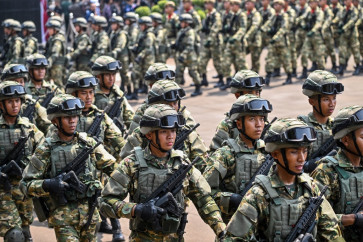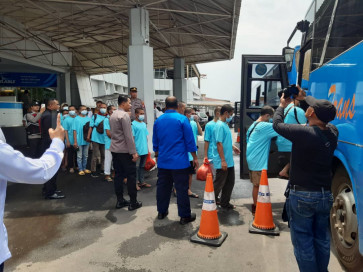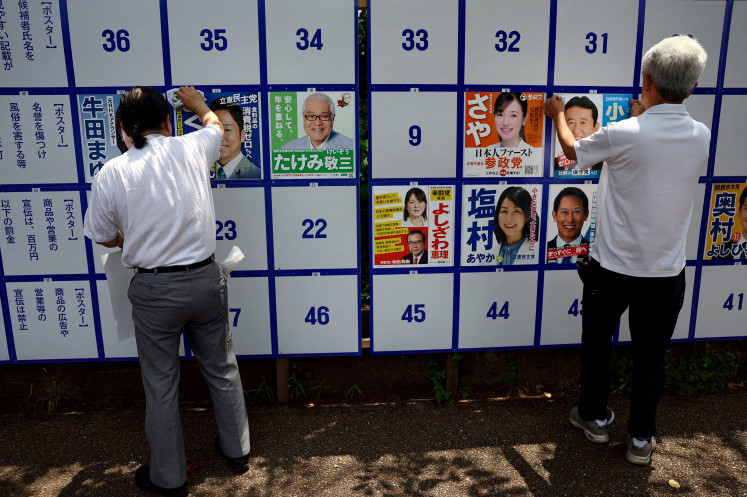Popular Reads
Top Results
Can't find what you're looking for?
View all search resultsPopular Reads
Top Results
Can't find what you're looking for?
View all search resultsEmployers to comply with labor rulings
The Indonesian Employers’ Association (Apindo) has vowed to abide by the Constitutional Court’s decision that has annulled rulings on temporary work and outsourcing practices
Change text size
Gift Premium Articles
to Anyone
T
he Indonesian Employers’ Association (Apindo) has vowed to abide by the Constitutional Court’s decision that has annulled rulings on temporary work and outsourcing practices.
It says, however, the court’s decision won’t automatically annul the existing labor contracts currently in practice.
Apindo deputy chairman Djimanto said most employers had no objections to the court’s decision, which is aimed at promoting labor protection as set out in the Constitution.
Most medium-sized and large companies were used to equal treatment for their contract-based workers and permanent staff.
“The main problem is that many small companies offering construction and cleaning services face financial difficulties. They can’t give optimal protection to their workers due to small profit margins. Cooperatives and labor-intensive industries also tend not to give protection to their employees to cut labor costs. No action has been taken against them so far,” he said.
The Constitutional Court declared on Tuesday that some articles of the 2003 Labor Law were no longer valid because they contravened the Constitution. The Court issued the ruling following a request by a labor union in Surabaya, East Java, that claimed contracts in temporary jobs and outsourcing left workers unprotected.
The Manpower and Transmigration Ministry has found around 5,475 small- and medium-sized companies, employing more than 600,000 workers in security and cleaning services for big corporations, that ignored workers’ rights, including allowances and social security protection. Most construction and plantation companies, cooperatives and small-scale credit providers (BPR) paid only monthly wages to workers and gave no severance payments when labor contracts with workers were terminated.
Djimanto called on the government to enforce the Court’s decision by inserting workers’ normative rights into labor contracts. He also said the government should disseminate the Court’s decision to recruitment agencies and outsourcing companies.
He said however that Apindo would likely lodge an appeal with the Constitutional Court, to review Chapters 50-56 on severance and service payments for dismissed workers, saying such an obligation overburdened employers.
“Many employers prefer to employ contract-based workers or outsource a part of their work to other companies under labor agreements so that they have no obligation to pay high compensation in the form of severance and service payments when they need to downsize their workforce,” he said.
Separately, labor unions applauded the Court’s verdict with a call for the government to enforce it immediately to provide protection for the majority workers in the informal sector, small-scale enterprises, cooperatives and plantations.
Chairman of the Indonesian Workers Union (SPN) Bambang Wirahyoso and secretary-general of the All-Indonesian Workers Organization (OPSI) Timbul Siregar welcomed the Court’s verdict, saying the ruling was a great blessing to millions of workers who were employed without any job security or adequate protection.










